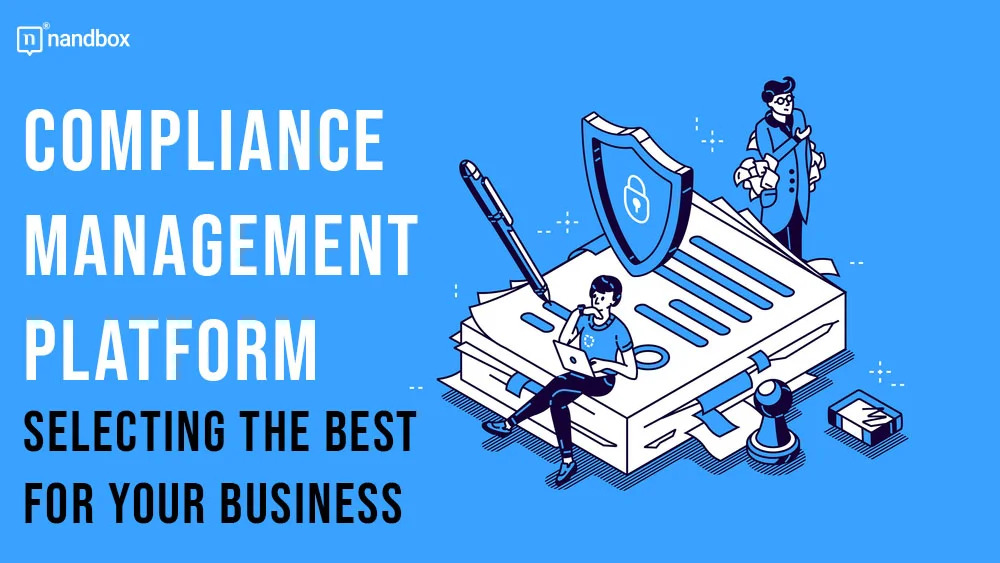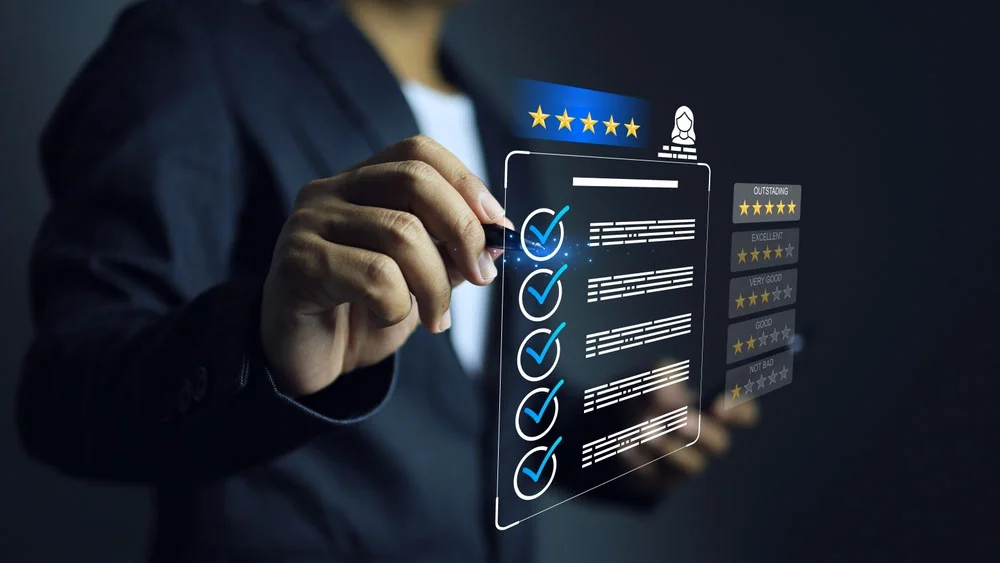Adhering to compliance management platform standards is more than just a legal obligation. It’s a foundation for building trust and credibility in your industry. Compliance goes beyond being a legal requirement; it’s the foundation for establishing credibility and earning trust in your industry.
Against the backdrop of a rapidly changing regulatory scene and intricate compliance landscapes, selecting the right compliance management platform safeguards your business and smooths operations. This article discusses the factors to consider when selecting the best compliance management platform for your business. This includes GRC risk management software, GRC compliance software, and contract compliance management software.
What Is a Compliance Management Platform?
A compliance management platform helps business organizations sail smoothly through many legal and regulatory requirements. These platforms provide features to streamline compliance processes, manage risks, and ensure that your organization remains in good standing with industry regulations. The tools can be broadly categorized into:
- GRC Risk Management Software: The software identifies with governance, risk, and compliance—and brings risk management, compliance monitoring, and internal controls under one framework.
- GRC Compliance Software: This is a piece of software placed in the subcategory of compliance management within the GRC framework. It works on compliance as dictated by regulatory requirements or internal policies.
- Risk Management Software: The tool is basically used to determine, evaluate, and prevent various risks that may be a threat to the organization.
- Compliance Management Software: This is general compliance software and covers a broad spectrum of compliance needs, from tracking changes in regulations to managing audits and different policies.
- Contract Risk Management Software: Manages the risks related to contracts, such as the tracking of obligations to assure contract compliance and mitigate potential risks.
- Contract Compliance Management Software: Ensures that all the obligations under the contract are duly met and that their management is in compliance with the laid-down requirements.
Key Considerations in Choosing a Compliance Management Platform
Define Your Compliance Needs
First, identify what your compliance needs are. Reason: Compliance varies across various industries. Take the case of a financial services firm. It would require advanced GRC risk management software that can deal with complicated regulations and risk scenarios. On the other hand, a manufacturing firm might need contract compliance management software for adherence to safety and environmental regulations. Consider the regulations impacting your business and what features you’d want in compliance management software.
Evaluate Features and Capabilities
Compliance management platforms are rich in features. Some of the key features include:
- Risk Assessment and Management: Compliance management software needs to have proper risk assessment and management capabilities for effective GRC risk management. This needs to include the identification, evaluation, and mitigation of risks from potential business operations at multiple levels.
- Regulatory Tracking: Ensure that the ability of the platform to track changes and updates in regulations is maintained. This could be critical in many ways for compliance under evolving regulations.
- Audit Management: Features should be provided for scheduling, documentation, and reporting on internal and external audits.
- Document Management: Compliance management software should have robust document management capabilities for storing, retrieving, and managing compliance-related documents and records.
- Reporting and Analytics: The platform should be able to provide detailed insights on compliance performance through reporting and analytical tools, tracking trends in the compliance area, reporting compliance metrics, and yielding meaningful insights for decision-making purposes.
- Integration Capabilities: Compliance management software is supposed to be able to integrate with other existing systems at your organization, which include, among others, ERP, HR, and financial systems.
Consider User Experience and Accessibility
A compliance management platform is normally as good as it is usable. Consider the following aspects:
- Ease of use: Make the platform more intuitive and user-friendly for better navigation and to make it easier to start working with a minimal learning curve.
- Accessibility: The platform should be easily accessible from multiple devices and locations, more so in the case where you have a remote or distributed workforce.
- Training and Support: Check if there is a good measure of resources offered by the provider in training and support, aimed at your team, who will effectively use the chosen platform.
Compliance Management Platform: Assess Scalability and Flexibility
The more your business grows, the more compliance management requirements will increase. Hence, it is necessary to select a scalable and flexible platform. Consider if it allows the scale for increasing volumes of data and users and if it can adapt to new regulations or changes in the business process.
Review Features on Security and Data Privacy
Since compliance management platforms deal with sensitive data, security, and data privacy are immensely important. Watch out for features that ensure:
- Data Encryption: Ensure that the platform does both at-rest and in-transit encryption of data to guard against unauthorized access.
- Access Controls: It should grant granular access control, delimiting the extent to which users can access the data according to their roles and responsibilities.
- Compliance with Data Protection Regulations: Check if the platform abides by relevant data protection regulations, such as GDPR or CCPA.
Rate Vendor’s Reputation and Support
The reputation of the platform provider may influence the experience you get from the software. Check up on the vendor’s reputation by reading through customer reviews, their record, and ratings on industry expertise. In addition to this, you should consider their support level in all aspects, including customer service, and technical support. And also whether the software will be updated.
Compliance Management Platform: Consider Cost and Return on Investment
Another factor in selecting a compliance management platform is cost. Comparing the total cost of ownership—which includes licensing fees, implementation, training, and maintenance. This is due to the potential return on investment from increased compliance, decreased risk, and improved operational efficiency
Check for Customization and Configuration Options
Compliance requirements are clearly quite different from one organization to another. A good compliance management platform should offer configuration and customization options to tailor the software to your specific needs. This shall include dashboards, workflows, and reporting templates.
Compliance Management Platform: Test the Platform
Most of the vendors will offer free trials or demos of their compliance management software. Make use of this to get first-hand experience with the platform and know if it fits your needs. Engage relevant stakeholders in the review process to elicit feedback and further ascertain that the platform answers all your business needs.
Plan Implementation and Integration
After selecting a compliance management platform, you need to plan to implement and integrate it seamlessly. This comprises:
- Implementation Plan: Establish steps for software deployment, including data migration, system configuration, and user training.
- System Integration: Ensure the platform integrates with existing systems and workflows to avoid disruptions and ensure seamless operations.
- Monitoring and Evaluation: The performance of the platform should be continuously monitored. You should take feedback from the users to deal with as many issues as possible and ensure its optimal use.
Conclusion
Choosing the best compliance management platform is crucial for your organization’s ability to adhere to regulations, manage risks, and build trust with stakeholders. As you assess your compliance needs and the features offered by various platforms, consider factors such as user experience, security, and cost to find a solution that best aligns with your business objectives and supports your compliance goals. Whether you choose GRC risk management software, GRC compliance software, or contract compliance management software, the right platform will help you navigate compliance complexities and enhance your organization’s efficiency and effectiveness.
FAQs
What is the difference between GRC risk management software and GRC compliance software?
GRC risk management software focuses on discovering, assessing, and mitigating risks across various business operations, while GRC compliance software is designed to establish parameters for regulatory compliance and internal policies. Both find a place within a broader GRC framework, each with unique functions.
What are the benefits of compliance management software for my business?
Investing in a compliance management platform helps optimize compliance processes, track regulatory changes, and manage risks—reducing the likelihood of penalties for non-compliance and increasing overall operational efficiency. It also enhances your capability to be trusted and credible to all stakeholders.
How do I check compliance management software for scalability?
To assess scalability, check if the software supports increasing data volumes and user numbers as your business grows, adapts to new regulations or changing business needs, and offers flexible configuration options for future adjustments.





